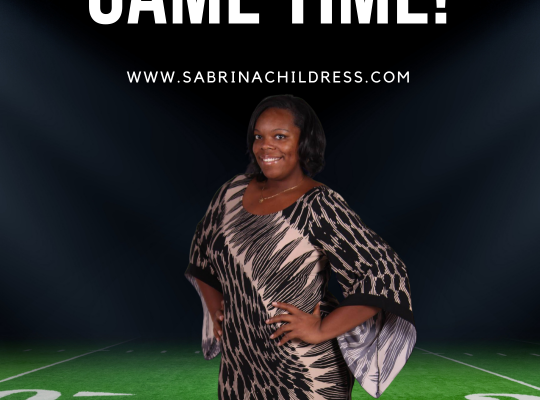Public relations is all about relationships, and the success of your career depends on the relationships that you build. That might sound like a no-brainer, but it’s easy to forget when you are in the middle of a crisis or crisis management situation. In fact, many new public relations professionals don’t realize how important building relationships is until they’re knee-deep in mud while trying to get someone out of one! This post is designed to outline some basic rules for building successful relationships with people throughout your career so that you can avoid some common pitfalls along the way.
Know your purpose.
No matter what you’re working on, it’s critical to begin with a clear sense of your purpose. In PR, that means knowing what you want to accomplish and why—and then understanding how you can use communications as part of an integrated strategy to help achieve those goals.
Doing this requires research into the organization’s internal goals and external factors such as the market landscape, competition, and other stakeholders.
Build relationships with people who can help you.
There’s no way to build your reputation without relationships. You’ll need them with the media, influencers, potential clients, and employers. And it’s important not just to have a relationship, but to maintain it as well—you don’t want to burn bridges or leave people feeling like you’re only interested in what they can do for you.
Be authentic! If you’re not genuine about who you are, people will see through that quickly and won’t trust you.
Maintain relationships by staying in touch with everyone from time to time—don’t wait until something comes up that requires your help before reaching out!
Treat people as you would want to be treated.
Let’s face it: not everyone is going to like you, but that doesn’t mean that you should be a jerk to them. People are more likely to want to help someone who is kind and courteous than someone who isn’t. It’s important for PR professionals, especially those just starting out in their careers, to remember this fact and treat everyone with respect and dignity.
In addition, being honest and understanding are also vital parts of being a good PR professional because they allow people outside of your organization better understand what they need from you as a company or business. Being patient will help build good relationships because it allows people time receive information at the pace they’re comfortable with rather than forcing them into something they’re not ready for yet (or simply don’t care about). Compassionate listening skills also go hand-in-hand with patience since these traits show others respect by giving them space when needed instead of rushing things along before others feel comfortable enough share anything personal about themselves with another person—especially since many people feel nervous around strangers initially anyway! And finally being helpful goes along similar lines as being patient because it shows others kindness through actions rather than just words alone; otherwise we wouldn’t know whether our efforts were actually making anyone else happy unless we asked them how everything went afterward instead!
Sometimes you’re going to fail. That’s OK. Learn from your failures and be better next time.
Sometimes you’re going to fail. That’s OK. Learn from your failures and be better next time.
Don’t get so caught up in the idea of perfection that it paralyzes you into inaction—you will make mistakes, and that’s fine! It’s a part of life, and if you’re not making mistakes, you’re not learning anything new or pushing boundaries enough to create great work.
So when things go wrong (and they will), don’t despair: pick yourself up off the ground, dust yourself off, apologize for any inconvenience caused by your mistake/failure/mishap/misunderstanding/etc., learn from what went wrong so that it doesn’t happen again in the future (or at least try!), and keep moving forward toward whatever goal(s) inspired this quest in the first place.
FUN FACT: Listen To The Good Enough To Fail Podcast hosted by Sabrina Childress!
There will always be another opportunity (or another story idea).
The next time you find yourself in this position, instead of thinking “This is the end of the world!” try something different. Try saying: “Okay, I don’t have this particular story idea or client right now but there will be another one. It’s going to happen sooner than later—and I’m willing to bet it’ll be a better one!”
If you’re working with an editor and they ask for a story idea from you and then shoot it down without giving any feedback or explanation as to why, remember that there will always be another opportunity (or another story idea). It might not come tomorrow or even next week, but eventually, it will come around again. In fact, if we look back at all our past experiences at PR News and its sister publication B2B Communications magazine, over the years, there were many instances when we didn’t get what we wanted initially only because something else came along that was ultimately better suited for us and our readership anyway. And while we’re talking about relationships here.
Practice being gracious, regardless of the outcome.
Graciousness is a virtue, a sign of maturity and confidence, and an indication of good character. That’s why you should always be gracious when your PR efforts don’t pan out.
The truth is that not every campaign will be successful. Sometimes it’s just not meant to be. Even if you’ve done everything right in your planning, execution, and measurement—even if the client was in love with the idea at first but changes their mind later—you should still be gracious about it all by saying something like: “I understand why this isn’t working for you anymore.” This lets them know that even though things didn’t go as planned (and there are no guarantees in life), it doesn’t mean they have anything against them personally or professionally. You can’t please everyone all the time; being able to take rejection gracefully shows respect for yourself as well as others around you who might have different tastes than yours or different priorities than yours when making decisions about what they want vs. what they need from a product or service offered by someone else outside their immediate circle.
Be aware of the opinions, and the agendas, of your audience and the media. Work to build trust.
When it comes to PR, the relationships you build are what matter most. That’s why it’s important to pay attention to your audience and the media; if you don’t know who they are and their interests, it will be hard for you to impact them positively.
The goal of PR is always about building trust with your audience and the media. The better your understanding of their needs and interests, the more likely you’ll be able to communicate effectively with them.
There will always be stressful situations that are unavoidable or unforeseen, but having a plan in place can help reduce stress and ease the pain of an unpleasant situation if it arises.
You can’t have a plan for every situation. That’s why you need to know your limits and what you are getting into before accepting any PR opportunity.
You also need to know when to ask for help or advice from someone who has more experience than yourself, especially when it comes to dealing with potentially harmful situations that could turn out badly if not handled properly. What’s the worst that could happen? Is there an appropriate channel of communication with your client so they won’t be offended by your request? Do they even care at all?
It’s important not only that you take precautions against negative feedback but also positive feedback as well; in this case, it would make sense for them to reply publicly on social media or in some other public forum (which is why we mentioned having a plan for such situations earlier).
If you keep these things in mind at all times, you’ll have a successful Public Relations career, no matter what happens along the way!
If you keep these things in mind at all times, you’ll have a successful Public Relations career, no matter what happens along the way!
PR is all about relationships.
PR professionals have relationships with the media (who they help get their stories published), but they also build strong and lasting relationships with their clients and partners. That’s why when there is bad news to be shared—for example, if your client has been caught doing something wrong—it’s important to choose your words carefully and ensure that message reflects well on your client.
When you’re working for a company or organization with a big presence in the community (especially if it’s publicly traded), it’s important for PR people to know how those decisions are going over with their audience (i.e., public opinion). Not only does this help them craft better campaigns for their clients; it also helps them shape organizational policies so that those policies reflect positively on those same clients’ brands as well as their own reputations within the industry
In the end, Public Relations is a lot of work, and it takes time to build relationships with people. But if you can keep these tips in mind, it will make your career much easier. I hope this article has helped you understand how Public Relations works and given you some advice on how to improve your own skills and strategies!







